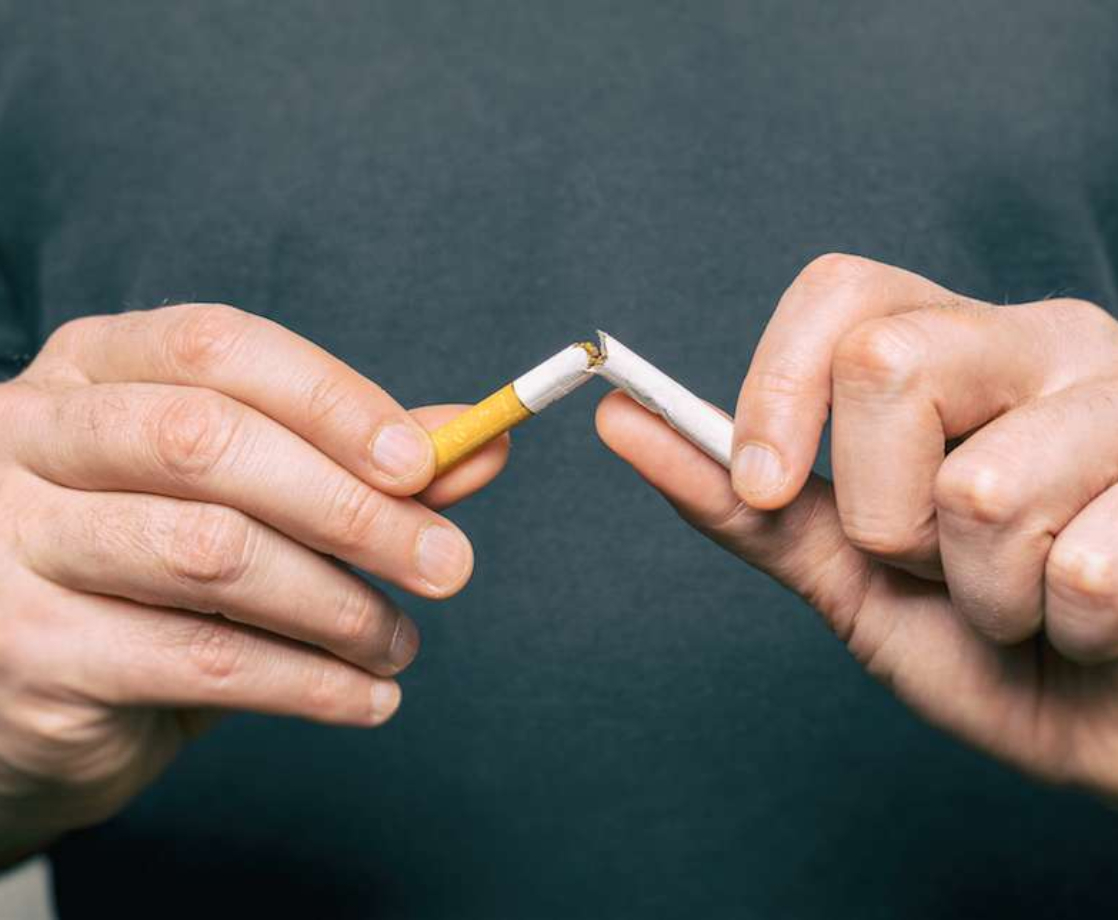Johns Hopkins University Medical School made history last year by becoming the first American university to establish its own psychedelics research institute. And as of last week, the school’s researchers are already finding that a component of “magic mushrooms” can snuff out cigarette smoking for good with just a single dose.
That component is psilocybin, a Schedule I drug according to the federal government that converts into the trippy compound psilocin after being orally ingested. “I tried everything and I was starting to think that I would never be able to stop, so I went for it,” Davi Peterson, a research participant at Johns Hopkins who smoked tobacco for 25 years, told CBS Baltimore. “It started very quickly,” she continued, describing the psilocybin experience, “kinda like being launched out of a space shuttle or something hurling through space. It was very dramatic and very quick.”
“Time and space changes completely,” Peterson added. “[It was] one of the most intense experiences of my life, and it probably always will be.”
To date, Johns Hopkins’s pilot study has dosed 700 participants on psilocybin. A whopping 80 percent of them stopped smoking after a single psilocybin-assisted therapy session. The findings confirm previous research that showed psilocybin could break not only nicotine addiction but also alcohol, opioid, and stimulant addictions, too.
In fact, psilocybin’s medicinal properties, as well as its relative lack of toxicity, has prompted nearly 100 major US cities to decriminalize psilocybin-containing mushrooms and other plant-based psychedelics. Denver, Oakland, and Santa Cruz have already decriminalized shrooms or reformed city ordinances to tolerate the fungi.
While scientists still don’t understand how psychedelics like psilocybin can be incredibly effective at treating behavioral problems such as drug addiction, they’re slowly starting to figure it out.
“It kind of sets off a cascade of activity in the brain that’s very different than what’s happening when we’re normal and awake,” said Albert Garcia-Romeu, PhD., the lead researcher of Johns Hopkins tobacco addiction study. “People will often come out of these sessions describing changes in their way of thinking, their way of relating to the people around them.”
Notice that Garcia-Romeu described the therapeutic trip as a “session” and not a “sesh.” Most of the research concerning the psychiatric applications of psychedelics involves what’s called psychedelic-assisted psychotherapy, a reemerging approach to medicine where a trained therapist guides a patient through a trippy session. So, it’s therapy where the trip forces the patient to confront deep-seated personal issues rather than one where the doctor and patient break out some glow sticks while dancing badly under a bubble projector.
A separate brain imaging study from the University of Zurich and Yale University published in January shows that psilocybin increases connections among various brain regions where there usually aren’t any. Katrin Preller, PhD., who led the brain imaging study, told Psypost, “Psilocybin — similar to LSD — induced a pattern of brain connectivity that is characterized by increased synchronization of sensory brain regions and decreased connectivity of associative networks.”
In other words, psilocybin can get parts of the brain communicating with one another that usually never talk with each other. These psychedelic-induced connections may help people with addictions feel differently about their behaviors by literally rewiring the brain.
The research from Preller and Garcia-Romeu’s groups may finally put an end to the global nicotine-addiction epidemic, which was successfully being combated by education and policy campaigns until recent years, after nicotine vaping grew in popularity. Although nicotine vapes are often marketed as safer alternatives to smoking tobacco, the latest research remains inconclusive, and some studies show that vaping nicotine could be more habit-forming than burning through cigarettes.











